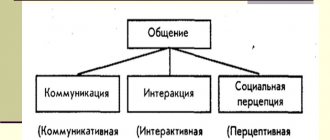Are you on the right path for your career growth? Or do you just want to do what you do? Answer the question how your strengths and abilities match your daily work, because... it has a big impact on your quality of life.
The first factor in a successful career is unlocking your abilities, which essentially reveals your strengths that you could use. The invaluable ability factor is quite simple. It shows how good you are at what you do or how valuable you are to your company or your clients. When you started working in your position, you had a certain level of qualifications that qualified you for the job.
However, getting a job does not make you invaluable. You need to increase your overall value to ensure you are indispensable at work. Simply put, ability is a measurement of how much you exceed the expectations of your boss or clients. You can read about how to become indispensable and gain authority in our article “How to become an authority in a company and society.”
This material will help you recognize your strengths, understand your talents, and understand the process of improving them. When you put your effort into what you already have, you will reap greater benefits than wasting a lot of energy on something that is not your strength. In fact, one characteristic of highly successful people is that they have learned to develop their strengths rather than trying to improve their weaknesses .
Next, we'll look at how your talents match the job responsibilities you perform or the position you want to pursue. In today's competitive market, it is important to constantly improve and move forward. This article will help you create an action plan.
What are aptitude tests
Tests of ability to analyze information are a method of personnel selection that objectively assesses predisposition to professions. This way, the employer gets an idea of how suitable the applicant is for a specific position, and the candidate gets the opportunity to reveal his qualities.
Based on the results obtained, HR evaluates future employees impartially. This minimizes the likelihood of lying, eliminating situations where an incorrect first impression of applicants during an interview prevents an employer from choosing an employee.
As a result of fair competition, the position is awarded to the most prepared, motivated and competent candidate.
Tests from SHL rus, Talent Q, Ecopsy Consulting are used by the largest Russian companies and government agencies. For example, at the remote stage of the “Leaders of Russia” personnel competition, ability tests were used as the primary selection of participants. They help identify capable candidates for senior management positions: general, financial, creative directors, top managers, managers of branches and enterprises.
Important:
With the help of mental ability tests, civil servants and employees in business, marketing, IT technologies, HR, consulting, and analytics are selected. In addition, tests are used to evaluate university graduates, form a personnel reserve, and determine the prospects and potential of young specialists.
Healthy self-esteem: let's summarize
In order to form adequate and healthy self-esteem, the first thing you should think about is whether there are any people close to you who regularly criticize and humiliate you without reason. Such an environment will make it much more difficult to work on changing your attitude towards yourself. The next step is to directly perform exercises that will help you find and form positive ideas about yourself. They will allow you to build healthy self-esteem over time.
Yes, it won’t be easy, but after doing this kind of work on yourself, you will learn to love and respect yourself, and also be calm about your own shortcomings, no matter how successful your day is. Healthy self-esteem is the key to new successes both in your career and in your personal life.
In addition, modern psychotherapy also allows you to effectively work on developing an adequate attitude towards yourself. On our website you can sign up for a consultation with a psychologist. Our specialists will definitely help you both with issues of adjusting your self-esteem and with other difficulties and problems of an emotional nature.
What does testing evaluate?
Assessment tests do not determine developed skills, but the basic abilities or predispositions of candidates, without affecting human psychology. They help to understand the development prospects in the industry.
Aptitude tests are used to determine a person's potential and the contributions he or she is capable of making in the future.
Aptitude tests are used in all industries. They are used to identify:
- aptitude for exact sciences;
- analytics;
- modeling;
- predict the speed of reaction and thinking;
- ability to make decisions in emergency situations;
- degree of intellectual development of a person;
HR department employees use them in business, determining their aptitude for working with finances and communicating with clients.
Testing is usually done remotely
, on the online portal of the recruiting company. SHL, for example, has a system for this called SHLtool test, which automatically generates reports, links to testing and a list of the best candidates.
What are the types of aptitude tests?
Tests of verbal and nonverbal abilities usually include 3 tests. Each company has a different approach to assessment, so sometimes they use all three tests at once, and sometimes only one of them. It is recommended to ask HR about the procedures adopted in a particular company.
Numerical tests
This type is used by interviewers in most companies. They reveal the inclination and level of development of abilities for exact sciences and calculations. As a rule, they are offered to those candidates whose job responsibilities involve calculations or working with numbers. For example: IT; business; consulting; banks; logistics; industry.
Testing numerical abilities evaluates the perception and analysis of numerical information, working with currencies, drawing up analytical tables, graphs, and diagrams. The tasks are overloaded with unnecessary numbers and graphs, from which you need to find the necessary information and make simple mathematical calculations. Typically, this is a calculation of percentages, shares or proportions.
Example of a numerical aptitude test:
Go throughGet ready
Verbal
Verbal tasks assess the level of ability to analyze verbal information, that is, the skills of perceiving text and the ability to navigate in it. Based on the test results, HR understands how productively a person absorbs text, analyzes it and makes decisions.
Assignments are a passage of text, one or more statements, or a question. The applicant needs to determine whether the output matches the text or not. In verbal analysis tasks, there are usually at least 5 statements. Moreover, only one of them corresponds to the idea of the text. The second type of task is more difficult, because a person must simultaneously keep several sentences in his head.
Example of a verbal ability test:
Go throughGet ready
3.Spatial and systems thinking (Logical)
Logical tests assess the level of abstract thinking of the candidate, the consistency and logic of his decisions. For example, at the SHL company such a test is called the Systemic Thinking Test SRT (Systems Reasoning Test). Nonverbal testing is used in IT technologies, banks, light, heavy and oil industries, and is used by audit firms.
The tasks consist of a sequence of geometric shapes that must be continued.
Spatial Reasoning Test:
Go throughGet ready
Understanding Mechanics
Bennett (mechanical aptitude) tests are used when hiring engineers or technical personnel whose work requires knowledge of basic physical principles. Such questions assess understanding of mechanics, dynamics, knowledge of the laws of physics, and the ability to mentally work with figures in space. They also contain elements of standard tasks for determining the IQ, therefore they are used when hiring managers, bankers, financiers, and senior executives.
Mechanical Understanding Test:
Go throughGet ready
Intelligence levels
Intellectual level is the same IQ. According to the data obtained as a result of the survey, intelligence levels are presented in the table.
| Above 140 | A person has excellent creative abilities and can achieve significant success in various branches of scientific knowledge. They are known for their outstanding abilities and contribute to science and the development of society as a whole. Representatives: Bill Gates, Stephen Hawking. |
| From 131 to 140 | Very high levels of intelligence, only 3% of the human population possess them. They can be described as very gifted, successful people. They are also capable of achieving heights in science and creativity. Representatives: Nicole Kidman, Arnold Schwarznegger. |
| From 121 to 130 | The rate is above average, observed in 6% of the population. Such people are immediately visible in high schools and universities. Without much effort, they excel in all subjects, are active in social and creative activities, and receive honors diplomas and gold medals. In their chosen professions, such people reach special heights and successfully move up the career ladder. |
| From 111 to 120 | Representatives are very diligent and hardworking people who spend their entire lives trying to learn something new, learn, and develop. There are approximately 12% of such people. |
| From 101 to 110 | An average level of intelligence, which allows a person to achieve noticeable heights, but not great success. There is no need to be upset, because such intelligence can be developed and pumped up, just as athletes build muscle mass. |
| From 91 to 100 | Also average IQ. With due effort, such people are able to study well at school and graduate from university. As a future professional activity, they usually choose mid-level professions that do not require serious intellectual effort. |
| From 81 to 90 | Representatives of this level of intelligence do well or averagely at school. They rarely receive higher education; they prefer to confine themselves to a technical school or college. They work successfully in areas where they need to use physical activity and be able to work with their hands. |
| From 71 to 80 | People usually have mild mental retardation. They graduate from general education schools with average or satisfactory grades and can study in specialized schools. |
| From 51 to 70 | A more serious form of mental retardation, but such people can take care of themselves, perform work that does not require intellectual effort, and be full members of society. They study in specialized schools. |
| From 21 to 50 | This level of intelligence is characteristic of 2% of the population; it is characterized as severe dementia, an average degree of mental retardation. People are not trained, but can cope with basic household things. For more complex manipulations, they require the help of caregivers. |
| Up to 20 | A severe form of mental retardation, people are not amenable to training and education. They exist in their own world; in modern realities they cannot survive without the help of guardians. |
Difficulties and errors during passage
Aptitude Test Difficulties
| Stress | Since an interview is always associated with emotions, stress significantly affects the result. The anxiety is heightened by the lack of information about the tasks and the time limits for completing them. |
| Lack of preparation | Many candidates do not know what awaits them in the assessment and how to prepare for it. This approach results in even competent applicants receiving low grades |
| Lack of time | You are given no more than a minute to complete one task, so there is always little time to think. Unprepared applicants need time to understand the question, understand the essence of the task and choose an answer. |
| Lack of information | Some applicants are not interested in the problem format, authors, or company testing procedures. They train on tasks of the same type or, conversely, delve into specific literature, gaining extra knowledge not related to testing. |
Low self-esteem: examples of sources
Example No. 1
The girl was told from childhood that she had a bad character. And all her life, although she is very kind, she thinks that she is an evil person with a terrible character. Accordingly, she experiences a strong feeling of guilt when refusing to help someone, and because of this, she often does something contrary to her own interests and desires.
Example No. 2
Or a man has been told since childhood that he is ugly, but smart. In fact, he is quite attractive, but throughout his life he has underestimated himself and experiences significant discomfort due to the feeling of being outwardly unattractive. This is how complexes are formed that often haunt a person for a very long time.
Example No. 3
The parents told the child that he “failed.” And even as an adult, he believes that something is wrong with him. Even when achieving success in his career or personal life, he seems to be trying to prove to his parents that he is “normal”, to achieve their love and recognition.
Tips for preparing for mental ability tests
- According to HR consultants, the best way to prepare is to take practice tests online. This way, applicants become familiar with the form of tasks, find out what questions they will encounter during an interview, learn to quickly answer them, and identify their strengths and weaknesses. In addition, such training allows you to avoid stress and gain confidence in your own abilities.
- During practice tests, it is recommended to analyze the mistakes made using the solution manuals. First of all, it is important to identify weaknesses and understand why the wrong answer was given. After this, they devote time to searching for information on this topic.
- There is no point in looking for free answers to tests. In each company, the bank of questions is constantly updated - employers try to avoid a situation where two candidates are faced with the same set of tasks. A dynamic difficulty level is often used - the difficulty of testing depends on the number of correct answers. In this case, no two identical tests are found at all.
- Stay calm and concentrate. Self-doubt and haste will negatively affect the result.
Advice:
If a question is difficult, sometimes it is better to skip it than to waste the remaining time.
Criteria for a mature personality
Various concepts are also put forward on this score, the focus of which is on a variety of elements of the personality structure.
Carl Jung said that a mature personality readily accepts responsibility for its actions. For Carl Rogers, it means the freedom to be yourself, to make your own choices, to manage your life. Next we will get acquainted with the concepts of four psychologists: Kazimierz Obuchowski, Arthur Rean, Gordon Allport and Lidia Bozovic.
Obukhovsky's concept
Polish psychologist Kazimierz Obuchowski's concept is of particular interest because it is the least similar to the others on the list. He proposes to consider four parameters and not single out the main thing among them - all of them must be developed equally in order for the personality to be considered mature.
- Feeling of life satisfaction : this is the overall positive background against which a person views his existence. However, this does not mean that such a person cannot experience negative emotions, which are an inevitable reaction to the difficulties of life. At the same time, if the influence of destructive emotions continues long enough, a person loses his ability to develop.
- The emergence of new features : a different understanding of the world, new views. And most importantly, the transition to an abstract concept of the world.
- Development of skills : a person needs to strive to acquire new skills, abilities and knowledge, despite the fact that this leads to an increase in the complexity of the tasks facing him. It must constantly improve to keep up with demands.
- Self-control : A person is controlled by his emotions, so he must learn to distance himself from them so that it does not affect his intellectual capabilities.
Rean concept
Russian psychologist Arthur Rean considers four basic criteria for a developed personality:
- positive thinking and perception;
- self-development;
- tolerance;
- responsibility.
Rean argued that personality is never fully formed, it is constantly evolving. But he sees this not as a tragedy, but as the opening of limitless opportunities for personal improvement.
A person must learn to successfully implement the resources, strengths and abilities at his disposal to achieve his goals, as well as actively master more global and significant values.
Allport concept
American psychologist Gordon Allport offers six main criteria for a developed personality:
- Self-acceptance and tolerance towards others . A developed personality has its own strong beliefs and at the same time allows for the existence of a different point of view.
- Strong social connections . A developed personality knows how to maintain close relationships and at the same time not interfere with others with his existence.
- Expanding the self-concept . This is the activity of the individual, the purposefulness of his activities.
- Unity of ideological views . A mature person has an idea of his life purpose.
- Self-objectification . A person is able to be himself, be in harmony with his inner world and not play other people's roles.
- Realistic perception, assessment of skills and task . A person should not be subject to momentary fads, but instead set a goal and achieve it.
Bozovic concept
Soviet psychologist Lidiya Bozhovich, a student of Lev Vygotsky, identifies two key criteria for a formed personality.
First criterion : the motives of such a person are inherently hierarchical. She is strong-willed and capable of indirect behavior (she is not controlled by impulses, but by rules, requirements and norms).
Second criterion : a person’s ability to consciously control and manage his behavior. This is only possible if he relies on his own motives, goals, aspirations and beliefs.
We wish you good luck!
Did you like the article? Join our communities on social networks or our Telegram channel and don’t miss the release of new useful materials: TelegramVKontakteFacebook
We also recommend reading:
- Storytelling
- Conditions for character formation
- Socialization of personality: briefly about the main thing
- Personal identity
- Spheres of personality
- Mature personality
- Character
- How to Achieve Emotional Maturity
- The influence of social roles on personality development
- “What is in your character?”
- How to create your own personality chart
Key words:_D1002, _D1003, _D1027, 1Self-knowledge, 4Self-knowledge











